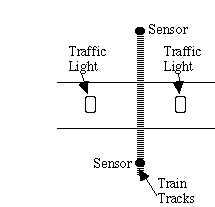
by
Doug (Sorry it ain't a paragraph) Lyon
In a new field of research, one must be honest with one's own ignorance in the field. An old advisor once told me "Only%20teach%20what%20you%20know" .
Ethics, as it appears to me, so far, is a field where a great deal is written and very little is known. My inclination is to teach only what is known. For example, I do not fear telling students that they have a code of ethics. I do fear telling students that they should follow it. If I were to tell students that they should follow their code of ethics, it would be very important, I think, to prove that this action is correct. Such a proof, I think, has not been made (to my satisfaction).
Perhaps the answer lies in the distribution of the Thinking like an Engineer: The Place of a Code of Ethics in the Practice of a Profession by Davis. Still, I do not consider that I could speak with authority about it.
I am uncomfortable with the assertion that a code of ethics in a profession should be accepted by all in that profession. Even more disquieting is the assertion that I am unprofessional for not accepting my own professions' code of ethics.
Is it really wrong for an Engineer to have his own code of ethics?
If the answer is no, then what happens to the Davis assertion in Who Can Teach Workplace Ethics? Here it is said: "Ethics%20consists%20of%20those" standards of conduct that, all things considered, every member of a particular group wants every other to follow even if their following them would mean he too has to follow them. "
" If we assert that there exists an IEEE code of ethics AND that every member of the IEEE wants every other to follow the code of ethics even if their following them would mean he too has to follow them THEN it follows that I, as a member of the IEEE, must want this too.
Since I assert that I do not want every member to follow the code but to follow another code (for example, an engineer shall not engaged in the design of weapons or their systems), then the Davis definition of ethics appears to need modification.
Your company has decided to accept a contract with the city Bridgeport to design a traffic light controller for a railroad crossing. The intersection is depicted in the figure below:

You live in Bridgeport and knew some people who died at this crossing. The railroads position is that they have a legal right of way and that all cars must yield.
You have been running the rail road crossing gates yourself. You know that they are sometimes down when no train is coming. This, you infer, is sometimes due to a train which is parked close by.
Right away you reject the job. You say that what we really need here is an underpass. Your boss says, I know, but we are under contract and you must do a design. You are told to draw the finite-state diagram for the traffic-light controller.
What should you do?
What ethics do you consider in your design?
How does your design address these ethics?
What are the possible results of your actions?
Who shall take responsibility for these results?
After answering these questions, draw your state diagram, vouch for the safety of your device and describe how you handle device failure.